Stephenson Lecture Keynote Speaker
Discovery Day 2025
Thursday, November 6
Please note that our originally scheduled keynote lecturer, Avindra Nath, PhD, was not able to participate in Discovery Day due to the government shutdown. We are, however, pleased to announce that Boris Striepen, PhD, professor of pathobiology and the Mark Whittier and Lila Griswold Allam Professor of Microbiology and Immunology at the University of Pennsylvania, will join us as the 2025 Stephenson Keynote Speaker.
2025 Keynote Speaker: Boris Striepen, PhD
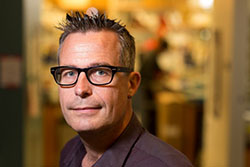
Dr. Striepen studied biology at the universities of Bonn and Marburg, Germany. He conducted undergraduate research on liver flukes in Bonn, and trypanosomes in Bobo Dioulasso, Burkina Faso. He earned a PhD for work on parasite biochemistry with Ralph Schwarz, was a postdoc with David Roos, studying parasite cell biology, and started his own laboratory at the University of Georgia in 2000.
In 2017, he joined the University of Pennsylvania. Dr. Striepen studies the cell and molecular biology of apicomplexan parasites. His current research focus is the parasite Cryptosporidium, a leading global cause of severe diarrhea and mortality in young children. His lab pioneered molecular genetics and mouse models for this important infection and leads a range of interdisciplinary efforts to understand fundamental parasite biology, and to advance translation towards drugs and vaccines.
Dr. Striepen is also engaged in education and training. He taught undergraduate and graduate classes, directed NIH training grant programs in parasitology, served as lecturer, faculty, and director of the Biology of Parasitism summer research course at the MBL for many years, and hosts the online Global Parasitology Seminar Series. He is married to a social worker with remarkable patience for scientists, and has three adult children, two are research scientists – all are awesome.
2024 Keynote Speaker: Keith R. Jerome, MD, PhD
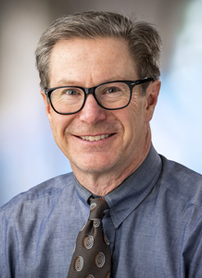
Keith R. Jerome, MD, PhD, is a physician and medical researcher on the faculty at the University of Washington and the Fred Hutchinson Cancer Research Center. His research focuses on the biology of chronic viral infections. He has published extensively on pathogen-host interactions and immune evasion by herpesviruses and is now pioneering the use of gene editing and gene therapy as potentially curative therapies for HIV, hepatitis B, human papillomavirus and herpesvirus infections. He has served as co-principal investigator and NIH contact investigator for defeatHIV, one of the original three Martin Delaney Collaboratories working toward a cure for HIV disease.
In addition to his basic science research efforts, Dr. Jerome leads the diagnostic virology program at the University of Washington. Under his guidance the program has designed and implemented molecular testing assays for a wide variety of human viruses, including SARS-CoV-2, hepatitis B and C, enterovirus, BK virus and cytomegalovirus. The laboratory provides diagnostic support for stem cell transplant and other patients in the Pacific Northwest and throughout the country via its reference testing services.
Dr. Jerome earned a bachelor of science from Georgetown College before earning a PhD in microbiology and immunology and his MD from Duke University.
Back to Top
2023 Keynote Speaker: Michael A. Yassa, PhD
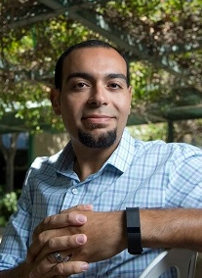
Dr. Michael Yassa is a professor in the Departments of Neurobiology and Behavior, Neurology, Psychiatry and Human Behavior and Psychological Science at University of California Irvine. He currently serves as the associate dean of diversity, equity and inclusion in the School of Biological Sciences and has been the director of the world-renowned Center for the Neurobiology of Learning and Memory since 2016. His research focuses on how our brains encode and store information into memories and how memories are used to guide everyday decisions. His work particularly addresses how memories are disrupted in neurological and neuropsychiatric disease.
Dr. Yassa received his bachelor’s and master’s degrees from the Johns Hopkins University and his PhD from the University of California Irvine. He began his career as an assistant professor in the Department of Psychological and Brain Sciences at the Johns Hopkins University in 2010 and moved to the University of California Irvine in 2014.
Dr. Yassa has been awarded numerous research grants including from the National Science Foundation, National Institute on Aging, National Institute for Mental Health and private foundations. He has authored over 100 research articles and his work is published in top tier journals. He has appeared on BBC World News, ABC News, CNN Health, NBC News and the PBS Newshour, and has been featured in numerous radio interviews and podcasts. Dr. Yassa has received multiple awards for research and teaching excellence and is a highly celebrated mentor. His lab fosters an inclusive research and training environment where different cultural identities are valued and embraced.
Back to Top
2022 Keynote Speaker: Veronica A. Alvarez, PhD
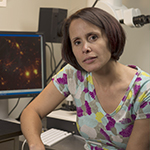
Veronica A. Alvarez, PhD, is acting chief of the National Institute of Alcohol Abuse and Alcoholism Section on Neuronal Structure, and lab chief of NIAAA’s Laboratory on Neurobiology of Compulsive Behaviors. Alvarez earned a PhD in neuroscience from University of Buenos Aires, Argentina. She trained as a postdoctoral fellow with John Williams, PhD, at the Vollum Institute of Oregon Health & Science University, studying the firing properties of locus coeruleus neurons and their modulation by opioids. She then trained with Bernardo Sabatini, MD, PhD, at Harvard Medical School, where she studied mechanisms of functional and morphological plasticity at glutamatergic synapses using electrophysiology and two-photon imaging. In 2008, Alvarez established an independent research program at NIAAA.
Research in her laboratory is aimed at uncovering the circuits and synaptic mechanisms mediating reward-motivated behaviors and compulsive drug use. Specifically, the goal is to better understand how cocaine and ethanol affect synapses and neuronal connectivity to drive the development of compulsive seeking that is experienced by individuals suffering from cocaine abuse or alcohol use disorder.
The lab is exploring drug actions in the cortico-mesolimbic circuit, with an emphasis on the nucleus accumbens. The team combines physiological and behavioral analysis, using in vivo and in vitro optogenetic and chemico-genetic tools to manipulate the activity of targeted neuronal populations and dissect their role in ethanol- and cocaine-related behaviors. The team’s overarching hypothesis is that cocaine and ethanol induce different adaptations on the two distinct subpopulations of medium spiny neurons in the striatum, direct- and indirect-pathway neurons, and that both pathways contribute differently to the psychomotor, rewarding and addictive properties of these drugs of abuse.
Back to Top
2021 Keynote Speaker: Azizi Seixas, PhD
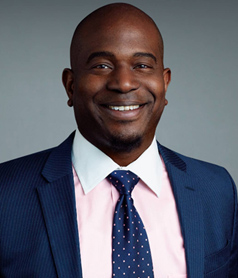
Azizi Seixas, PhD, is an assistant professor at NYU Langone Health in the Departments of Population Health and Psychiatry. His research broadly focuses on: 1) biological, behavioral, clinical, environmental and psychosocial determinants of cardiovascular disease, mental health and brain health; and 2) developing adaptive, precise and personalized behavioral interventions to improve health and well-being with the use of machine learning, translational artificial intelligence and digital technology.
He is recognized as a top 100 Most Inspiring Black Scientists in America by Cell Press. He has over 150 high-impact peer-reviewed publications, book chapters and conference presentations. Dr. Seixas' work has appeared in several media outlets, and he is the sleep expert for NBC Health News. He is a sought-after speaker and has presented keynotes at American Heart Association Scientific Sessions, Google Next and HIMMS conferences.
He leads several innovation initiatives at the American Academy of Sleep Medicine and is on the board of directors for Moshi: Sleep and Mindfulness, a sleep and mediation digital solution for children and families.
Back to Top
2019 Keynote Speaker: Chanita Hughes-Halbert, PhD
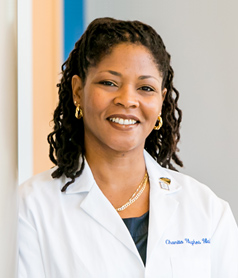
Professor, Department of Psychiatry and Behavioral Sciences
AT&T Distinguished Endowed Chair for Cancer Equity, Hollings Cancer Center
Associate Dean for Assessment, Evaluation, and Quality Improvement, College of Medicine
SmartState Center for Cancer Disparities
Medical University of South Carolina
Chanita Hughes-Halbert, PhD, is a nationally recognized expert in cancer prevention and control among diverse populations, and her research is supported by numerous grants from the National Cancer Institute and the National Institute on Minority Health and Health Disparities.
The goal of Dr. Hughes-Halbert’s research program is to identify sociocultural, psychological, genetic and environmental determinants of cancer health disparities, and to translate this information into sustainable interventions in clinic and community-based settings to improve cancer outcomes in racially and ethnically diverse populations.
Previously, she was a member of the Board of Scientific Advisors at the National Cancer Institute and the National Human Genome Research Institute Advisory Council. Dr. Hughes-Halbert is a member of the National Academy of Medicine.
Back to Top
2018 Keynote Speaker: Michael Lauer, MD
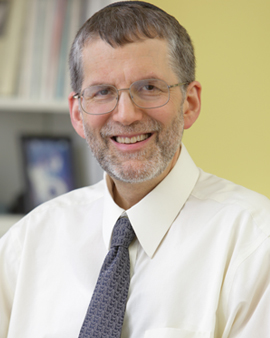
Keynote address:
"Thoughts and Perspectives About Extramural Research: People, Money, and Science"
Michael Lauer, MD, is deputy director for extramural research at the National Institutes of Health, where he serves as the principal scientific leader and advisor to the director of the NIH on all matters relating to the substance, quality and effectiveness of the NIH extramural research program and administration.
He received education and training at Rensselaer Polytechnic Institute, Albany Medical College, Harvard Medical School, Harvard School of Public Health and the NHLBI's Framingham Heart Study. He spent 14 years at Cleveland Clinic as professor of medicine, epidemiology, and biostatistics. During his tenure at the clinic, he led a federally funded, internationally renowned clinical epidemiology program that applied big data from large-scale electronic health platforms to questions regarding the diagnosis and management of cardiovascular disease.
From 2007 to 2015 he served as a division director at the National Heart, Lung and Blood Institute (NHLBI), where he promoted efforts to leverage big data infrastructure to enable high-efficiency population and clinical research, as well as efforts to adopt a research funding culture that reflected data-driven policy. He has received numerous awards including the NIH Equal Employment Opportunity Award of the Year and the Arthur S. Flemming Award for Exceptional Federal Service in recognition of his efforts to grow a culture of learning and accountability.
Back to Top
2017 Keynote Speaker: Teresa K. Woodruff, PhD
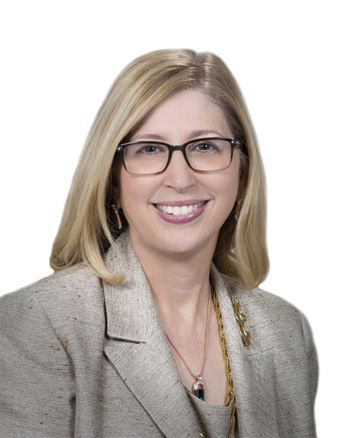
Teresa K. Woodruff PhD, is the Thomas J. Watkins Professor of Obstetrics & Gynecology, the vice chair for research (OB/GYN), and the chief of the Division of Reproductive Science in Medicine at the Feinberg School of Medicine. She is professor of molecular biosciences at the Weinberg College of Arts and Sciences, and professor of biomedical engineering in the McCormick School of Engineering at Northwestern University. She is also the director of the Center for Reproductive Science, founder and director of the Women’s Health Research Institute, and director of the Oncofertility Consortium. She is an internationally recognized expert in ovarian biology and, in 2006, coined the term "oncofertility" to describe the merging of two fields: oncology and fertility. She now heads the Oncofertility Consortium, an interdisciplinary team of biomedical and social scientist experts from across the country.
Woodruff has been active in education not only at the professional level but also with high school students. To this end, she founded and directs the Oncofertility Saturday Academy (OSA), one of several high school outreach programs that engages girls in basic and medical sciences. President Obama awarded her the Presidential Award for Excellence in Science Mentoring in an Oval Office ceremony in 2011. Widely recognized for her work, Woodruff holds 10 U.S. patents, and in 2013 she was named to Time magazine’s Most Influential Persons list.
Some of her recent awards and honors include a Guggenheim Fellowship (2017), the Society for Endocrinology Transatlantic Medal (2017) and a Leadership Award from the Endocrine Society (2017). She has two honorary degrees, including one from the University of Birmingham College of Medical & Dental Sciences, U.K. (2016). She is civically active and is an elected member of The Economic Club of Chicago and an elected fellow of the American Association for the Advancement of Science. Woodruff served on the school board of the Chicago-based Young Women’s Leadership Charter School, served as president of the Endocrine Society and championed the new NIH policy that mandates the use of women in fundamental research.
Back to Top
2016 Keynote Speaker: Charles Liu, PhD, MD
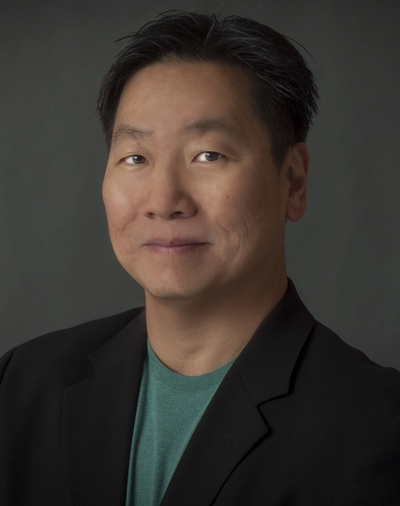
Charles Liu, PhD, MD, is a multifaceted medical doctor and researcher whose main interest is neurorestoration. Dr. Liu directs the Neurorestoration Center at the University of South California (USC). The center aims to turn new technologies into effective therapies to restore neurological function using an interdisciplinary approach involving neurosurgery, neurology and biomedical engineering in collaboration with a large number of academic and industrial partners. Dr. Liu also holds the surgical director position of the USC Comprehensive Epilepsy Center. With a BS in chemical engineering from the University of Michigan, Ann Arbor, a PhD in chemical/biomedical engineering from Rice University and an MD degree from Yale University School of Medicine, Dr. Liu is uniquely equipped to help neurorestoration research and progress into the future. His work has been featured in the popular media, see for example this CBS report, as well as a number publications in high-impact scientific journals.
Back to Top